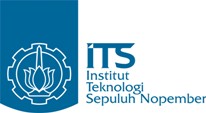Productivity Analysis Using the Critical Chain Project Method Management (CCPM) on Repair Projects Geomarin-III ship 649 DWT.
Abstract
Keywords
Full Text:
PDFReferences
T. Ahola, & A. Davies, “Insights for the governance of large projects : Analysis of Organization Theory and Project Management”: Administering Uncertainty in Norwegian Offshore Oil by Stinchcombe and Heimer. Int J. Manag. Proj. Bus., 5(8), 661-679. 2012.
J. R. Sitorus, Syaifuddin, & R. M. Hutauruk, “Produktivitas Pada Aktivitas Reparasi Di Galangan Kapal Pelabuhan Perikanan Nusantara Pelabuhan Ratu Provinsi Jawa Barat”. J. Univ. Riau, 14(17), 4240-4248. 2018. (in Bahasa)
Y. Triaditya,. “Kajian Percepatan Penjadwalan Overhaul Kapal Selam (KRI CAKRA – 401) dengan Metode CPM (Critical Path Method) dan PERT (Program Evaluation Review and Technique”. 2015. (in Bahasa)
L.P Leach,. “Critical Chain Management”. Boston,Artech House. 2000
M. Shurrab,. “Traditional Critical Path Method versus Critical Chain Project Management: A Comparative View”. Int. J. Econ. Manag. Sci, 4(9), 4-9. 2015.
M. Taghipour, F. Seraj, M. Amin, & M. Changiz Delivand, “Evaluating CCPM Method Versus CPM in Multiple Petrochemical Projects”. Management, 3(3), 1-20. 2020.
A, Suharsimi, “Prosedur Penelitian Suatu Pendekatan Praktik”. Jakarta: Rineka Cipta, 2019.
S, Silaen, “Metode Penilitian Sosial untuk Penilisan Skripsi dan Tesis”. Bogor: Penerbit In Media, 2018.
A, Rianto, “Metodologi Penelitian Sosial dan Hukum”, Jakarta: Granit, 2010.
S, Subroto,”Manajemen Pendidikan Sekolah”, Jakarta: PN Rineka Cipta, 2003.
Hasan, M. Iqbal, “Pokok-Pokok Materi Metodologi Penelitian dan Aplikasinya”. Jakarta: Ghalia Indonesia, 2002.
S., Wiji Utomo,. “ Analisa Produktivitas Dengan Metode Critical Chain Project Management Pada Proyek Reparasi TB Tanjung Buyut I 2x600 HP”. J Teknik Perkapalan., 9(3). 2021.(in Bahasa)
C. I. G. Nangka, M. Sibi, & J. B. Mangare,. “ Tenaga Kerja Pada Proyek Bangunan Dengan Menggunakan Microsoft Project (Studi Kasus: Proyek Pembangunan Terminal Akap)"., J.Sipil Statik, 6(11), 867-874. 2018. (in Bahasa)
H.T Handoko,. ”Dasar - dasar Manajemen Produksi dan Operasis”. Yogyakarta. BPFE-UGM. 2016. (in Bahasa)
A. Izmailov, D. Korneva, & A. Kozhemiakin,. “Effective Project Management with Theory of Constraints”. Procedia - Soc. Behav. Sci., 229(9), 96-103. 2022.
Project Management Institute, “A Guide to the Management Body of Knowledge 5th Edition”. Pennsylvania:Project Management Institute Inc, 2013.
DOI: http://dx.doi.org/10.12962%2Fj25481479.v8i1.15169
Refbacks
- There are currently no refbacks.
 |  |  |  |
| |  |  |
|
|
|
|
|
P-ISSN: 2541-5972
E-ISSN: 2548-1479
IJMEIR journal published by Department of Marine Engineering, Faculty of Marine Technology, Institut Teknologi Sepuluh Nopember Surabaya Indonesia under licenced Creative Commons Attribution-ShareAlike 4.0 International Licence. Based on https://iptek.its.ac.id/index.php/ijmeir/


1.png)
